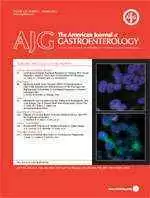
Celiac.com 09/29/2011 - Results of various studies comparing mortality in undetected celiac disease compared with the general population have been contradictory. Some studies have suggested a fourfold increase in mortality compared with the general population, while others have found no increase at all.
A research team set out to clarify the matter by crafting a cohort study of Cambridge doctors that would establish all-cause and cause-specific mortality in undiagnosed celiac disease, identified by anti-endomysial antibody (EMA) positivity.
Celiac.com Sponsor (A12):
 The team included C. Canavan, R. F. Logan, K. T. Khaw, and J. West. They are variously affiliated with the Division of Epidemiology and Public Health at University of Nottingham in Nottingham, UK, with the NIHR Biomedical Research Unit of the Nottingham Digestive Diseases Centre at Nottingham University Hospital in Nottingham, UK, and with the Department of Public Health and Primary Care, University of Cambridge, Cambridge, UK.
The team included C. Canavan, R. F. Logan, K. T. Khaw, and J. West. They are variously affiliated with the Division of Epidemiology and Public Health at University of Nottingham in Nottingham, UK, with the NIHR Biomedical Research Unit of the Nottingham Digestive Diseases Centre at Nottingham University Hospital in Nottingham, UK, and with the Department of Public Health and Primary Care, University of Cambridge, Cambridge, UK.
For their study, the team chose their subjects from a general population aged 45-76 years in 1990.
They then tracked all deaths using the Office for National Statistics. They calculated mortality rates per 1000 person year, making adjustments for age, gender, smoking and socioeconomic group using multivariate Cox regression to estimate hazard ratios (HR) and 95% confidence intervals (CI).
Results showed 117,914 patient years of follow-up from 7527 participants, with an average of 16.8 years.
Eighty-seven patients suffered from undetected celiac disease, their all-cause mortality rate was 9.4 per 1000 person years (95% CI 5.4-16.1) compared with 12.7 (95% CI 12.1-13.4) in EMA-negative participants.
The adjusted all-cause mortality hazard ratio was 0.98 (95% CI 0.57-1.69). Untreated celiac disease showed no increase in death due to cancer or circulatory diseases. Adjusted hazard ratios were 1.27 (95% CI 0.57-2.85) and 1.39 (95% CI 0.66-2.92) respectively.
The research team found no higher overall mortality in people older than 45 years with undetected coeliac disease compared with the general population. They also found no increase in deaths related to circulatory disease or cancer.
The team concludes that these results do not support routine screening people older than 45 years for celiac disease.
Source:
- Open Original Shared Link








Recommended Comments